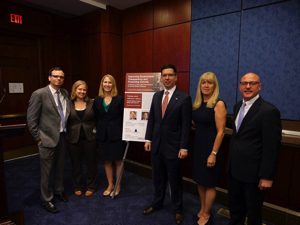-
Adopt
-
Veterinary Care
Services
Client Information
- What to Expect – Angell Boston
- Client Rights and Responsibilities
- Payments / Financial Assistance
- Pharmacy
- Client Policies
- Our Doctors
- Grief Support / Counseling
- Directions and Parking
- Helpful “How-to” Pet Care
Online Payments
Referrals
- Referral Forms/Contact
- Direct Connect
- Referring Veterinarian Portal
- Clinical Articles
- Partners in Care Newsletter
CE, Internships & Alumni Info
CE Seminar Schedule
Emergency: Boston
Emergency: Waltham
Poison Control Hotline
-
Programs & Resources
- Careers
-
Donate Now

*UPDATE:* After over 3 years of redactions and hidden documents, the United States Department of Agriculture (USDA) restored to its website animal welfare inspection reports for nearly 10,000 zoos, circuses, dog breeders, research labs and Tennessee walking horse shows. The reports, based on unannounced inspections, are used to build cases against facilities that violate animal welfare regulations. The MSPCA and other animal protection organizations have long used them to call attention to operations that treated animals inhumanely. The USDA has 60 days from Feb. 18 to release the rest of the reports, and we look forward to once again being able to ensure that the USDA is doing its job in enforcing the Animal Welfare Act.
On February 3, 2017, the United States Department of Agriculture (USDA) removed thousands of inspection and enforcement reports from a database on its website. In doing so, the USDA restricted immediate access to documents pertaining to animals, industries, and facilities regulated by the Animal Welfare Act (AWA). Simply put, this action endangers the lives of animals.
On Monday, February 13, 2017, the MSPCA, along with a number of animal protection groups filed a federal lawsuit in the U.S. District Court for the District of Columbia to compel the USDA to return to its website all records required to be publicly available related to its licensed facilities— “puppy mills,” laboratories, roadside zoos, traveling shows, and other facilities that confine and use animals covered under the AWA.
The court ruled in January 2018, that the Plaintiffs’ claims to the records were moot because USDA had reposted most of the documents at issue in the suit. However, while the USDA did repost many records, they are so highly-redacted as to render them largely useless for animal advocacy groups to ensure that the USDA is doing its job in enforcing the Animal Welfare Act. The USDA is now withholding from the public the names, locations, and license numbers of entities regulated under the AWA. In April, the Plaintiffs, including the MSPCA, filed another complaint in the same court challenging the USDA’s failure to disclose the records themselves (not all records have been reposted to the agency’s website) and its failure to disclose information that was previously readily available. Read the complaint here.
 How do the MSPCA and other advocacy groups use this information?
How do the MSPCA and other advocacy groups use this information?
Animal advocacy groups, including the MSPCA, used the information that was available on the USDA website to know whether animals are receiving the basic standards of care outlined in the AWA. Without these documents, there is no easily accessible public record of, for example, animals being malnourished, neglected, or directly abused at USDA-regulated entities. There is no longer a timely way to ensure that the USDA is doing its job.
The MSPCA used information available on the USDA website to advocate for animal protection legislation. We used the online reports to educate the public and lawmakers both about the condition of animals covered under the AWA, and the USDA’s implementation and enforcement of the law. Removal of ready access to the records makes these efforts much more difficult. For example, if a law prohibited pet shops from selling animals that came from businesses with recent AWA violations, it would now not be possible for the public, a regulated entity, or enforcement agency to immediately access this information and ensure compliance with the law.
Many other important issues also rely on the accessibility of these records. Recently, many Massachusetts municipalities have passed bans restricting the use of animals in traveling shows, such as circuses. Local ordinances like these require access to inspection records that document the way animals such as elephants, tigers, and lions are treated in circuses and other traveling shows, helping to make a case for banning circuses to protect the animals’ welfare.
What information did the USDA remove?
The information previously available on the USDA’s website gave the public the immediate ability to read about facilities and licensees regulated by the AWA. The public could search, for example, a licensed circus and review its inspection reports from recent years to learn about whether that circus complied with AWA regulations and whether or not it had been cited for violating any standards, such as failing to give animals adequate veterinary care. Consumers could also search for records regarding other AWA-regulated entities such as research facilities and commercial animal dealers.
What will this lawsuit accomplish?
The lawsuit seeks to compel the USDA to affirmatively disclose the records the MSPCA and other plaintiffs contend it had no right to remove in the first place. The lawsuit asserts that the sudden February 3 removal of these documents was illegal because the Freedom of Information Act (FOIA) requires agencies to proactively post frequently-requested records on their websites. The USDA itself has acknowledged that inspection reports were the most frequently requested records before they were made available online years ago. This lawsuit seeks to compel the USDA to put the records back online, in public view, where they belong.
What does this mean for animal protection?
Not having these documents available online means a greater struggle in passing legislation that would protect animals. While the USDA has maintained that records will be available through a Freedom of Information Act (FOIA) request, these requests are costly to the public, and it can take the USDA months —even years —to respond to these requests. Without these records, there is virtually no transparency around animal-related industries covered by the Animal Welfare Act. According to the USDA’s most recent annual FOIA report, it can take as long as 836 days—i.e., more than two years—to process a “simple” FOIA request, and up to 157 days for an expedited one.
What other initiatives are underway?
Congress is considering the “Animal Welfare Accountability and Transparency Act” (S. 503/HR. 1368) which requires that the USDA make the reports publicly available again on the USDA’s website. Further, it would disallow businesses that have committed a violation of the AWA from receiving tax benefits for five years.
Almost all of the Massachusetts Congressional delegation signed a letter that, among other things, requests budgetary language in the Agriculture Appropriations bill that would direct the agency to promptly restore the records to the online database. Please thank Senator Ed Markey, Senator Elizabeth Warren, Representative Michael E. Capuano, Representative Katherine Clark, Representative William R. Keating, Representative Stephen F. Lynch, Representative James P. McGovern, Representative Seth Moulton, and Representative Niki Tsongas for signing the letter.
 The MSPCA’s former deputy director of advocacy, Laura Hagen, spoke at the United States Capitol at a briefing regarding the USDA’s removal of online animal welfare records sponsored by Senator Ron Wyden, Representative Earl Blumenauer, and Representative Vern Buchanan. More than 125 congressional staffers were in attendance. The MSPCA’s comments focused on the impact of the records removal on consumers, the public, and the ability of state-based animal protection groups to ensure that the federal AWA is being adequately enforced and meeting its intended purposes.
The MSPCA’s former deputy director of advocacy, Laura Hagen, spoke at the United States Capitol at a briefing regarding the USDA’s removal of online animal welfare records sponsored by Senator Ron Wyden, Representative Earl Blumenauer, and Representative Vern Buchanan. More than 125 congressional staffers were in attendance. The MSPCA’s comments focused on the impact of the records removal on consumers, the public, and the ability of state-based animal protection groups to ensure that the federal AWA is being adequately enforced and meeting its intended purposes.
Read more:
USDA reposts animal welfare records it purged from its website in 2017
Washington Post, February 19, 2020
Read a letter from Massachusetts animal organizations to the USDA urging these records be put back on the website
USDA abruptly purges animal welfare information from its website
Washington Post, February 3, 2017
U.S. Animal Abuse Records Deleted—What We Stand to Lose
National Geographic, February 6, 2017
Watch the MSPCA at the United States Capitol briefing
Activists battle U.S. government in court over making animal welfare reports public
Science, May 24, 2017




